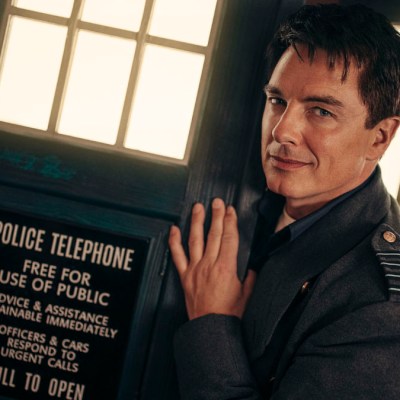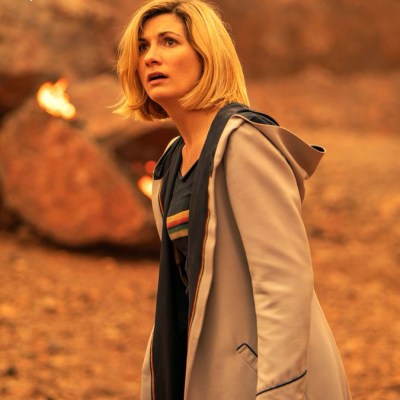Doctor Who: Why a Smaller ‘Fam’ is Good for the Show
It’s been confirmed that Doctor Who is saying goodbye to two of its companions – Tosin Cole’s Ryan Sinclair and Bradley Walsh’s Graham O’Brien – both of whom will leave the show in New Year’s Day special ‘Revolution of the Daleks.’
Though not as dramatic as the announcement of a new Doctor, the departure of a companion always signals a shift into a new era for Doctor Who. It heralds a change in dynamic, a change in story arc and the potential for the Doctor to show a new side. Sad as it can be, it means renewal, a theme that runs through the heart of the snow.
Along with almost everything in pop-culture these days, giving the brand-new Doctor no fewer than three full-time companions was something of a divisive choice. The merits and drawbacks of the decision, from showrunner Chris Chibnall, to surround the Doctor with such a screentime-gobbling ‘fam’ has been brought up plenty of times in fan discussions about the show in recent years.
But it’s not just simple maths (one TARDIS minus two characters = more fun with the Doctor) which makes this an exciting decision. Here are a few reasons why Graham and Ryan’s departure could be a game-changing moment for the series…
This could be a fan-favourite episode in the making

Doctor Who fans won’t need reminding that ‘character farewell’ episodes have provided some of the biggest and (arguably) best moments since the series returned to our screens in 2005.
From the gut-wrenching emotional wallop of David Tennant and Billie Piper leaning up against plasterboard walls in ‘Doomsday’, to the gut-wrenching emotional wallop of Catherine Tate not having a clue who David Tennant is in ‘Journey’s End’ – these episodes and others like them are legendary in the fandom, and some would argue that Doctor Who needs a bit of legendary-ness right now (although, for the record, I personally liked all the Master/Cybermen stuff last season).
It certainly sounds like Chibnall, his actors, and the BBC press team are keen to evoke memories of previous tragic goodbyes: Bradley Walsh has described his final episode as “dramatic […] sad […] poignant”, Cole has called it “emotional”, Whittaker said she was “absolutely devastated” by it, and Chibnall has gone all-out with his promise of an heart-rending goodbye.
Chibnall said at a press event, “I can tell you that it’s very emotional. We’ve all been in tears watching it. […] So, yeah, without spoiling anything, it’s hard, but we don’t shy away from what it means for this family to have its final moments together. It was emotional off-screen. It’s emotional on-screen.”
It’s going to be emotional, basically, like some of the biggest fan-favourite moments in years gone by. Saying that, is ‘favourite’ the right term for something that might make you cry if you think about it too much?
Yaz (and the Doc) could finally have space to grow
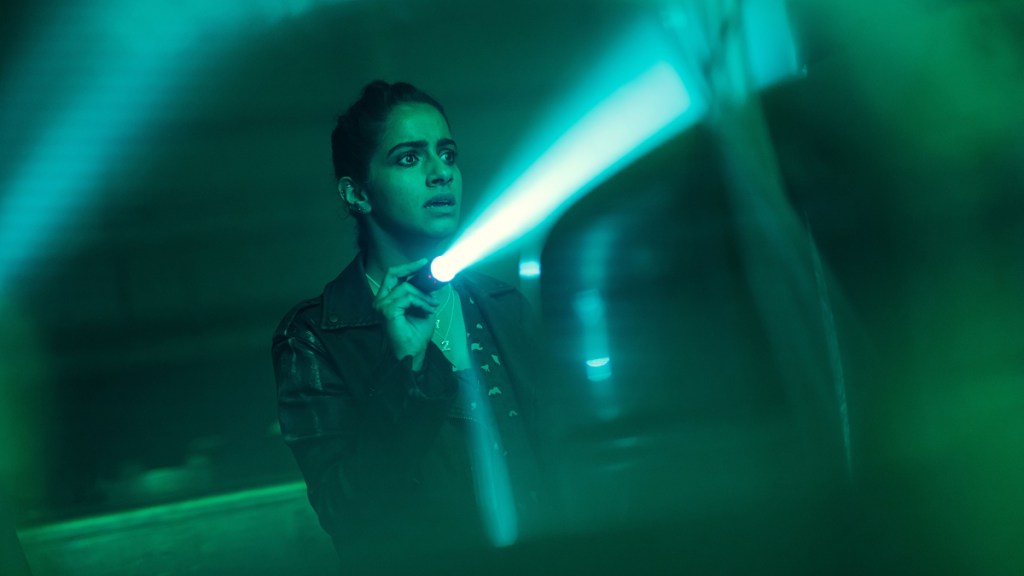
Graham and Ryan will leave a very different show in their wake (tragic funeral pun very much intended… not that I have any clue what’s going to happen). With two fewer people on Team TARDIS, there will be more time in the average episode for Jodie Whittaker’s Doctor and Mandip Gill’s Yaz to do their own thing.
Gill has already been quoted as saying that there’s “more to come” for Yaz, which will be music to the ears of a certain sect of fans. We’ve long wanted to see more from Yaz than spouting exposition, repeating what other characters have just said, and asking simple questions for the sake of the audience.
Of course, we’ve already started to see more of Yaz’s personal life: we’ve seen glimpses of her skills as a police-trained investigator, and last season we saw flashbacks to her earlier struggles with her mental health. Despite all that, it’d be hard to argue that Yaz feels like a fully fleshed-out character at the moment, and that’s probably down to the fact that she hasn’t had a lot of time in the spotlight.
Likewise, Jodie Whittaker’s version of the Doctor could benefit from having more time to shine. So far, she’s had three other characters to jostle with every episode (not including guest stars), and she’s also had some fairly huge plot events to dash through. That doesn’t leave a lot of time for her own personality to develop, which is probably why ‘jolly’ is really the only word that comes to mind to describe her. (Here’s why we think that Whittaker’s Doc could do with her own ‘everybody lives’ moment.)
Once Graham and Ryan have said their tragic farewell, then, we could be looking at a show led by two talented actors, both of whom will now have more time to develop their characters and show us further facets of their personalities. Here’s hoping that Chibnall and co.’s next wave of scripts allow these characters to reach new levels and prove what they’re capable of. (Fingers crossed they don’t announce three new companions on New Year’s Day.)
Different types of stories can happen now
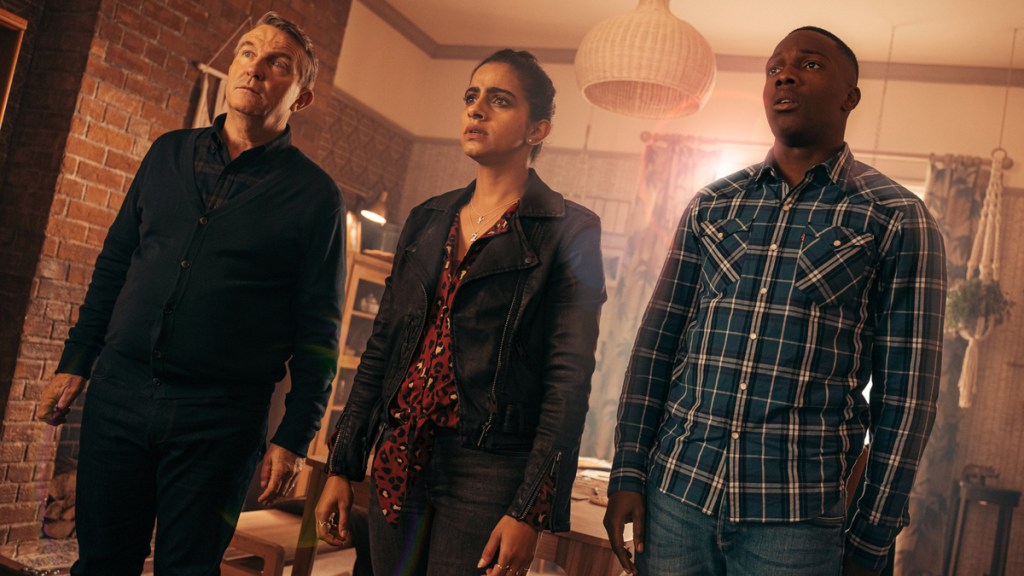
Think back to Donna and Rose again – they both had tragic farewell episodes, sure, but long before that, the groundwork was being laid. We were given plenty of time to get to know these characters and lots of reasons to care what happens to them.
Particularly with Donna, I think a large part of why she became so beloved is that she had so much breathing room. There were plenty of ‘two-hander’ episodes with Donna and the Doctor (the DoctorDonna… sob!) bundling into a situation and working it out together, and there were even one-hander episodes like ‘Midnight’ and ‘Turn Left’ when Donna and the Doc got to have solo adventures which put them through the wringer and firmly under the spotlight.
You couldn’t really say the same for Yaz, Graham and Ryan, none of whom have had an episode off – or a proper solo adventure – since joining the show in 2018. You can partly blame the format of the show for that: back in Tennant and Tate’s day, there would be 13 episodes per season, and Russell T. Davies had to get creative to cram them all into a humanly-possible shooting schedule (hence the one-handers, which would be shot at the same time); whereas now, we have 10 episodes per season (and next year, due to Covid-19, only eight), and Chibnall has been cramming the whole gang into all of them.
But with the ‘fam’ reduced from four to two, after ‘Revolution of the Daleks’, hopefully, we could see a return of two-handers. And perhaps one-handers at a push. Let’s not forget that Peter Capaldi, as recently as 2017, was running around that space castle thingy on his own.
I’d settle for two-handers, though: adventures where the Doc and Yaz show up somewhere, work the room, interact with the locals, and start putting the puzzle pieces together. You could have an A-plot for the Doc and a B-plot for Yaz, or you could even keep them together throughout and stick to one narrative throughline.
Compare that to the last couple of seasons: Chibnall has generally split the ‘fam’ into at least two teams per episode, and giving them each something to do has resulted in A-plots, B-plots, C-plots and sometimes even D-plots fighting for focus.
This, I’d argue, is why the show has recently resorted so often to quick fixes, which serve only to remind us of a character’s personal life (Ryan spending a few seconds with a basketball, or Graham spending a few seconds grieving) rather than diving deep – because there simply aren’t enough minutes in an episode to do it all justice. But with some of these subplots leaving with Walsh and Cole, Chibnall will have freed up some time and space for different sorts of stories to be told.
Guest stars could have a greater chance to shine
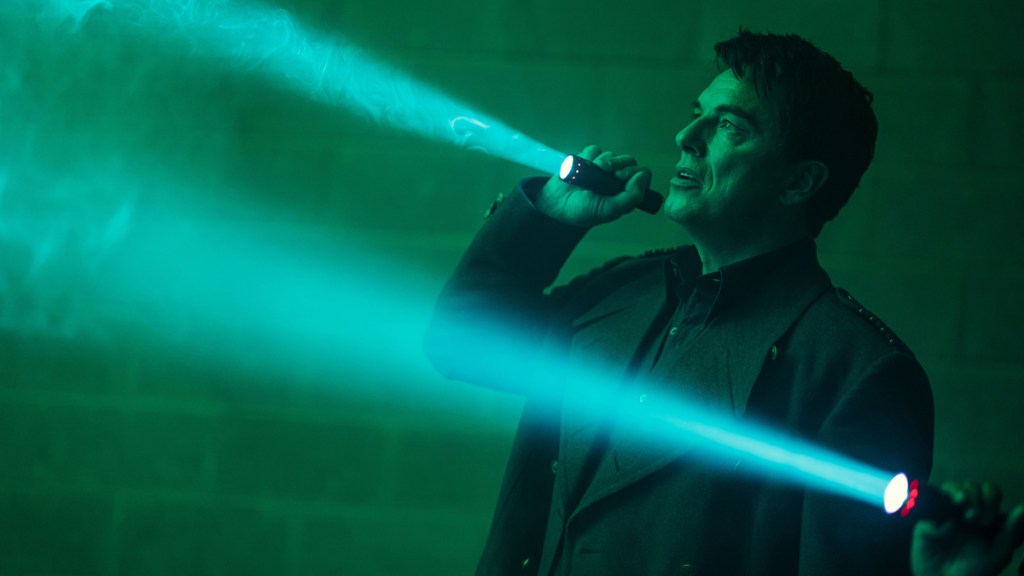
This may seem counterintuitive, given the exciting potential for Yaz and the Doctor to grow as characters in Doctor Who Season 13, but still, it’s worth saying: only having two core cast members to serve will give future guest stars much more of a platform on which to perform.
Think of the brilliant actors that have already appeared during Jodie Whittaker’s tenure as Doctor: we’ve had British TV staples like Stephen Fry, Lenny Henry, Sharon D. Clarke, Lee Mack, Alan Cumming, Mark Addy, Brett Goldstein, Julie Hesmondhalgh, John Barrowman and James Buckley; we’ve had major regenerations for famous characters, played by Jo Martin and Sacha Dhawan; we had Goran Višnjić and Robert Glenister both in Tesla episode alone, and countless other stars of past, present and future.
But how many of those talented folk were allowed proper room to breathe, create a character, and leave a mark on the show? Perhaps only Clarke, Martin and Dhawan, you could argue. And even they had to cram it in pretty darn quickly.
And so, as Season 13 begins to materialise, we will no doubt be treated to the usual flurry of announcements for upcoming guest stars. As ever, there will be some names we know and some names we don’t. And here’s hoping that, with the central gang trimmed down to two, these guest spots will once again become opportunities for actors to deliver truly memorable performances.
All things considered, then, it’s sad to see Bradley Walsh and Tosin Cole stepping away from the show – their characters could’ve done with more room to grow, as well. But the prevailing feeling is one of hope – there could be more character development to come, different sorts of episodes for us all to enjoy, and hopefully some great guest stars as the icing on the cake. Will the show line up to these lofty new expectations, though? Only time will tell…
The post Doctor Who: Why a Smaller ‘Fam’ is Good for the Show appeared first on Den of Geek.
From https://www.denofgeek.com/tv/doctor-who-why-a-smaller-fam-is-good-for-the-show/

